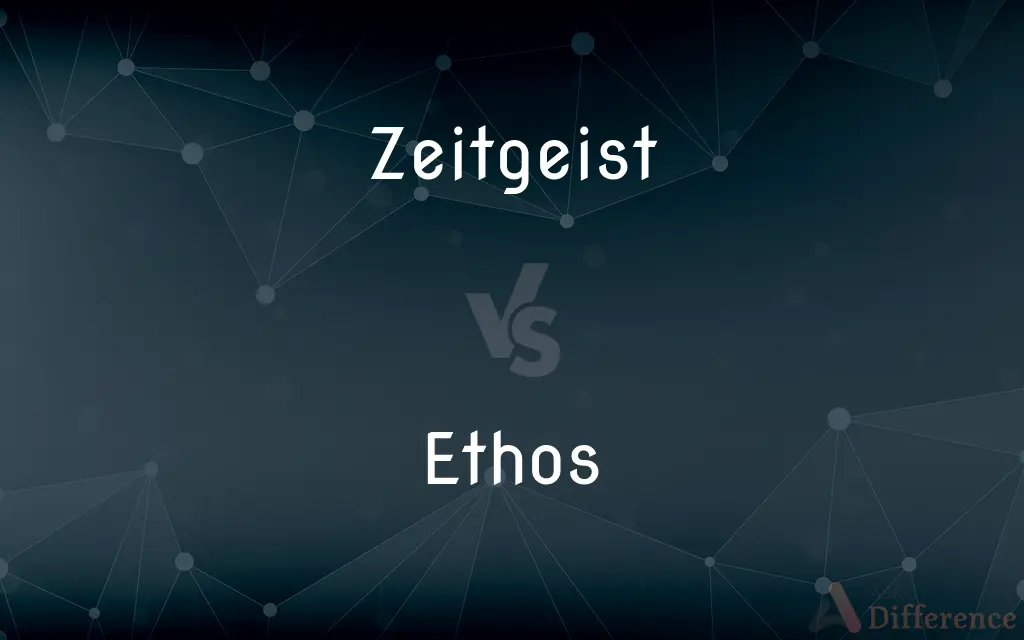Zeitgeist vs. Ethos — What's the Difference?

Difference Between Zeitgeist and Ethos
ADVERTISEMENT
Compare with Definitions
Zeitgeist
In eighteenth and nineteenth century German philosophy, a Zeitgeist (German pronunciation: [ˈtsaɪtɡaɪst] (listen)) ("spirit of the age") is an invisible agent or force dominating the characteristics of a given epoch in world history.Now, the term is usually associated with Georg W. F. Hegel, contrasting with Hegel's use of Volksgeist "national spirit" and Weltgeist "world-spirit". Its coinage and popularization precedes Hegel, and is mostly due to Herder and Goethe.
Ethos
Ethos ( or US: ) is a Greek word meaning "character" that is used to describe the guiding beliefs or ideals that characterize a community, nation, or ideology. The Greeks also used this word to refer to the power of music to influence emotions, behaviors, and even morals.
Zeitgeist
The spirit of the time; the taste and outlook characteristic of a period or generation
"A new cult of technological optimism has deeply embedded itself in the zeitgeist" (Sebastian Seung).
Ethos
The characteristic spirit of a culture, era, or community as manifested in its attitudes and aspirations
A challenge to the ethos of the 1960s
Zeitgeist
The spirit of the age; the taste, outlook, and spirit characteristic of a period.
ADVERTISEMENT
Ethos
The disposition, character, or fundamental values peculiar to a specific person, people, culture, or movement
"They cultivated a subversive alternative ethos" (Anthony Burgess).
Zeitgeist
The spirit of the time; the general intellectual and moral state or temper characteristic of any period of time.
Ethos
The character or fundamental values of a person, people, culture, or movement.
Zeitgeist
The spirit of the time; the spirit characteristic of an age or generation
Ethos
(rhetoric) A form of rhetoric in which the writer or speaker invokes their authority, competence or expertise in an attempt to persuade others that their view is correct.
Ethos
(aesthetics) The traits in a work of art which express the ideal or typic character, as influenced by the ethos (character or fundamental values) of a people, rather than realistic or emotional situations or individual character in a narrow sense; opposed to pathos.
Ethos
The character, sentiment, or disposition of a community or people, considered as a natural endowment; the spirit which actuates manners and customs; also, the characteristic tone or genius of an institution or social organization.
Ethos
The traits in a work of art which express the ideal or typic character - character as influenced by the ethos (sense 1) of a people - rather than realistic or emotional situations or individual character in a narrow sense; - opposed to pathos.
Ethos
(anthropology) the distinctive spirit of a culture or an era;
The Greek ethos
Share Your Discovery

Previous Comparison
Imagination vs. Idea
Next Comparison
Atlas vs. Axis













































